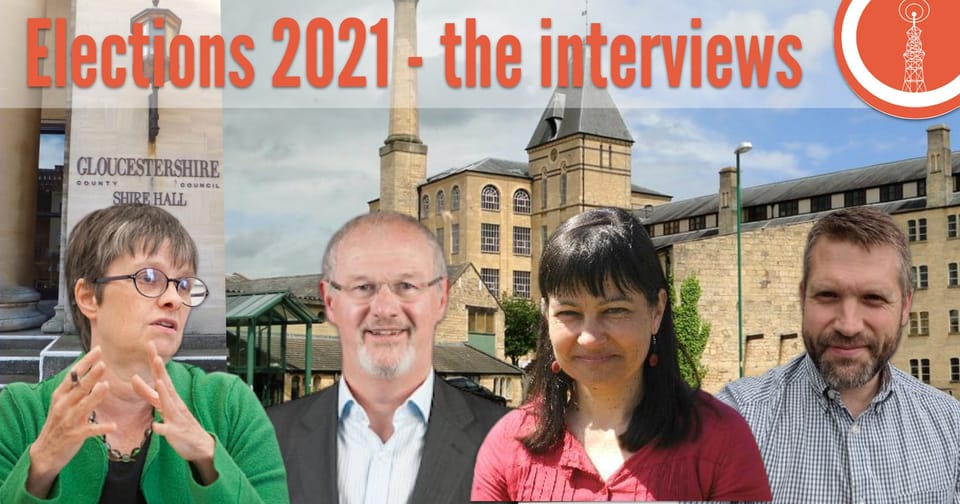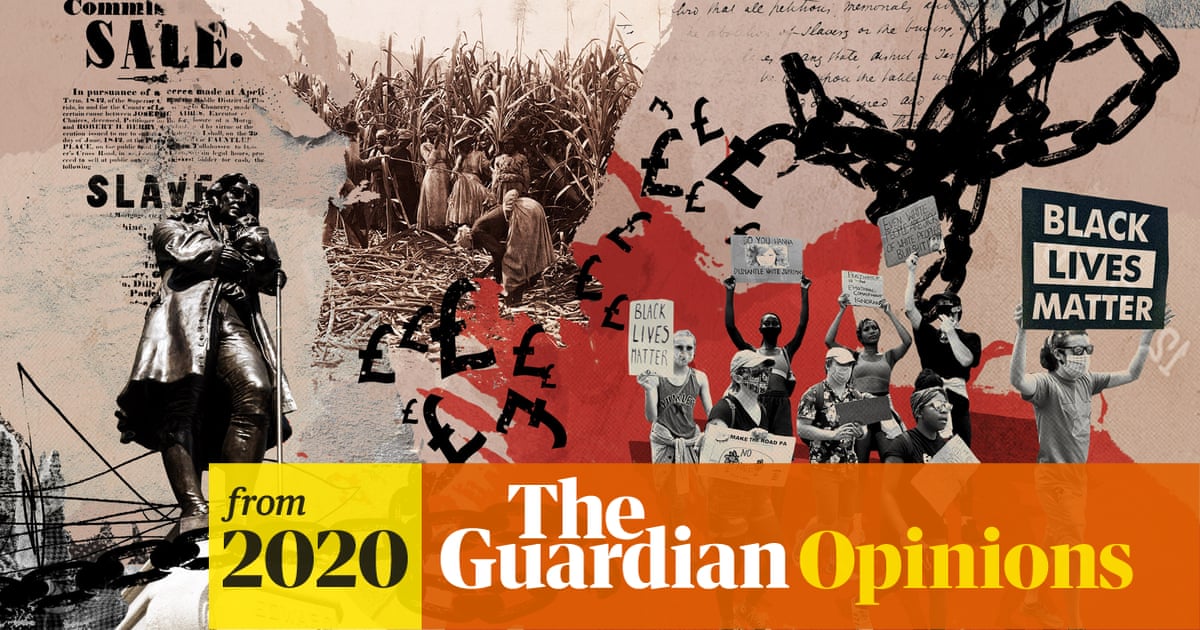Amplify Stroud's local election summary

By Amplify Stroud
Over the past month, we undertook a series of in depth interviews with representatives from each of the four major parties running candidates in the 2021 Stroud District local elections. We put questions to them not just from ourselves, but also submitted by Stroud residents and by each party directed to their opponents. We got to the heart of key local issues of concern including the climate emergency, access to housing and public services, racism, and much more.
You can find these interviews in full on our podcast, Amplify FM, which is available on all major streaming platforms. Those interviewed were Doina Cornell from the Labour Party, Molly Scott Cato from the Green Party, George James from the Liberal Democrat Party, and Stephen Davies from the Conservative Party.
As many of us may not have three and half hours spare to go through these in full before voting today, we have produced this summary of the key topics we covered and our judgement of each candidate’s position on these.
The Climate Emergency
Unsurprisingly, all of those interviewed stressed the importance of taking action to tackle the climate emergency. For instance, Conservative Stephen Davies highlighted his plan to expand access to electric vehicle charging points across the district and Liberal Democrat George James focused on transport and investment in green jobs whilst backing the council’s Carbon Neutrality Plan.
For green economist Molly Scott Cato, of the Green Party, this area was clearly home territory, and she spoke at length about putting the climate crisis at the center of the district and county council’s use of public money, transport improvements, and retrofitting housing. Similarly, Labour’s Doina Cornell, current leader of Stroud District Council, spoke of the councils track record on the environment, such as endorsing the Gloucestershire Tree Strategy, or using grant money to retrofit the homes of people at risk of suffering from poor health due to cold housing.
The fault lines emerged, however, over the action that the council has taken to date. These centred around the main critiques from the Conservatives, much of whose campaign is centred around criticising the council’s environmental record. However, it is worth noting that these criticisms include an incorrect and misleading statement regarding the council’s use of diesel service vehicles. When asked about these criticisms, they were dismissed by Scott Cato as the Conservatives ‘getting on the bandwagon late and trying to pick holes in other people.’
Both Scott Cato and Cornell also highlighted the lack of support and plans from central government regarding many of the key areas that the council is seeking to take action upon; retrofitting the councils social housing stock being a key example of this. This is a stance backed up by organisations such as the UK’s Green Building Council, and evidenced by the recent scrapping of the failed national Green Homes Grant policy, as well as acknowledged by Davies.
Growing economic and social divisions of the District
Issues such as inequity, inequality and accessibility are of particular concern for us as a socialist platform. Judging by many of the questions we received, local residents were equally keen to hear what each party had to say on these fronts. The affordability of housing, processes of gentrification, the underfunding and closure of youth services and lack of adequate infrastructure for disabled people were topics we raised across all of our interviews.
In the wake of our district recently being named by the Sunday Times as the best place to live in the UK, anxiety about the affordability of housing has been on the minds of many. Of particular interest was the council’s own ability to build and retain its own housing stock, with the Green, Labour and Liberal Democrat candidates displaying commitment to building more homes.
Scott Cato and Cornell were in agreement in their belief that the UK housing market has long suffered under the Right to Buy policy. Established under Margaret Thatcher in 1980, the policy which allows has long been in the thorn of local government’s side when it comes to increasing social housing stock. It would seem fair to accept this as a major hindrance against the council, although Davies claimed that the council under Cornell’s leadership had failed to meet its existing promises on house construction in 2020/21.
This would expose the Labour-led council to justifiable criticism, however Cornell insisted that Davies was making mountains out of molehills by referencing only a net increase of overall housing stock – new builds being calculated against steadily increasing numbers of house sales in the district, no doubt driven in no small part by the same Conservative policy that we’ve come to know over past decades.
Cornell also pointed to the fact that the same year Stroud District Council took back its housing stock, national government increased discounts on council house purchases. So it appears to us that Davies’ claims held little water when contrasted against our understanding of the crisis in Stroud and the UK housing sector at large; But of course we can’t lay the responsibility for national policy at Davies’ door, and he provided an interesting and unique suggestion during our discussion. A community led solution to balance against the influence of the private housing market, could be community land trusts. This alternative method of ownership was advocated for strongly by Davies and could open up interesting avenues for residents of the district, but for both the Conservative and Liberal Democrat candidates, there is an unsurprising lack of radicalism when it comes to building wealth within the community and challenging the dominance of ‘the market’ in decision making.
Racism
Many of the responses that we received to our call out for questions from the community were focused upon race and racism. On this issue there was a clear separation between the candidates, with Cornell, Scott Cato, and James all taking a much more reflective and understanding position in regards to racism in the local area than Conservative Davies. Davies used a freedom of speech argument whilst refusing to acknowledge the racism in Conservative Council Debbie Young’s social media activity, which he described as ‘unhelpful’. Indeed, an honest summary of Davies’ comprehension of race and racism would be to use Charles Mill’s description of White Ignorance, which is ‘an ignorance that is active, dynamic, that refuses to be intimidated’. Indeed, not being able to recognise and understand how Katie Hopkins and white replacement theory are racist, you have to extend this ignorance to its limits, which offers little hope for those looking for leadership and understanding on this from local political representatives. It is also worth noting that no Conservative candidates have signed Stroud Against Racisms pledge for the candidates in these elections.
Regarding the more substantive responses to this area, all three other representatives were much better in recognised the importance of addressing racism alongside the scale of the issue. For instance, both Cornell and Scott Cato highlighted the lack of diversity at a county council level, as well as the multifaceted presence of racism in rural areas and government institutions. James also noted the importance of education in schools but stopped short of suggesting more systemic interventions. Notable also was Scott Cato’s discussion of reparations, which demonstrates a good understanding of the need for racial justice that distinguished her from other candidates.

One other area of note here was the questions put to Labour’s Cornell, regarding the councils treatment of Gypsy, Roma and Traveller communities, following a few local examples of the council seemingly taking a negative stance in this area which will need further examination after the election.
Overall, these were four interesting and engaging conversations about the issues that really matter to people in the Stroud District. We asked questions submitted by you, and just because the elections will soon be over and the results revealed, these interviews are a reference point to understand what political parties want to do locally, and a mechanism to hold them accountable to this.
Of course, this is only a brief summary of the interviews, so if you are interested, please do go check them out on our website or on all major streaming platforms.



Member discussion